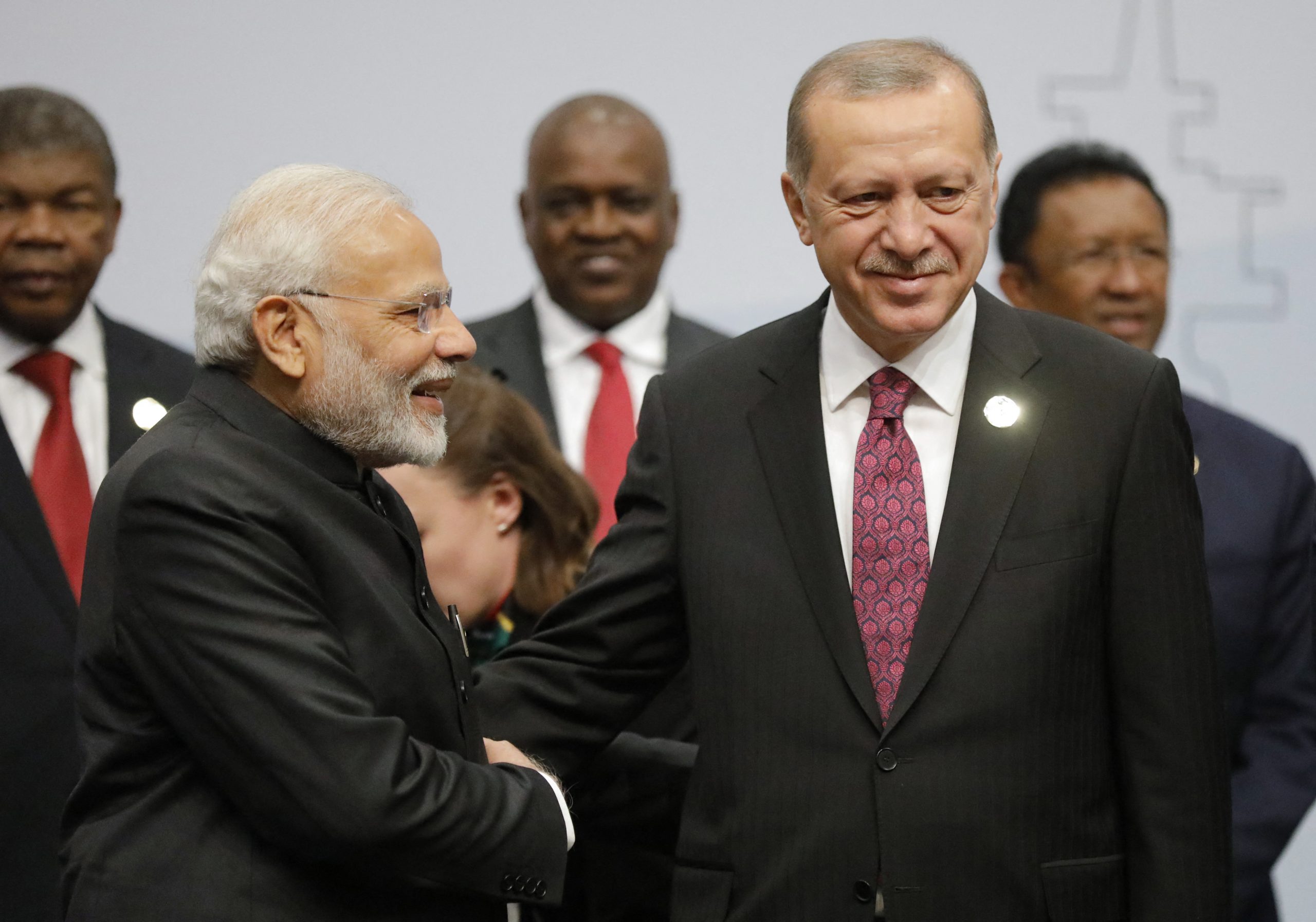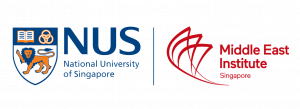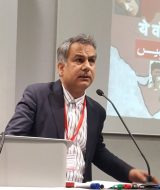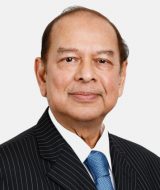
- 20 Oct 2021
Ertuğrul Goes East: Turkey Rising in South Asia
 |
 |
This event is organised by the Middle East Institute’s Arabia Asia Research Cluster and the Institute of South Asian Studies, National University of Singapore.
About the Panel Discussion
In 2019, at the start of Ramadan, Pakistani Prime Minister Imran Khan urged the country to watch a dubbed version of the Turkish perioddrama, Diriliş: Ertuğrul (Resurrection: Ertuğrul), on national television. In it, viewers will see that the hero struggles to impose just rule against foreign enemies. This drama was originally released in 2014 by the government-run Turkish Radio and Television Corporation to shore up domestic support for President Recep Tayyip Erdoğan by highlighting parallels between the hero’s struggles and the embattled Turkish leader’s rule. Ertuğrul is also popular among the Muslims of India and Bangladesh.
Turkey’s relations with the countries of South Asia have undergone significant changes recently. While Ankara and New Delhi enjoy cordial economic ties with two-way trade at 5.42 billion dollars from 2020 to 2021, they have had an uneasy political relationship due to Turkey’s support for Pakistan’s position on the Kashmir issue and divergent views on the Gülen movement. With Turkey set to become a critical player in post-America Afghanistan, bilateral ties are likely to enter a difficult phase. Pakistan has generally leaned towards Turkey, which, under Erdoğan, has chased neo-Ottoman ambitions of leadership of the Muslim world. Both have supported each other on the global stage and alongside Malaysia, they have designs on an alternative Islamic axis to rival the Arab one. Turkey also has close links with Bangladesh in several areas – bilateral trade is expected to double from the estimated 1 billion dollars that it currently is and Ankara has also internationally-backed Dhaka over the Rohingya issue.
The panel discussion will look at the history of Turkey’s links with South Asia and extend to exploring geopolitical impacts on the growing Ankara-Islamabad and Ankara-Dhaka ties, while examining the growing distance between Ankara and New Delhi. Finally, it will survey the cultural ‘battleground’ in the Muslim world, where drama serials such as Ertuğrul and the Saudi Arabia-UAE-backed Kingdoms of Fire are used to further each side’s narrative.
This public lecture will be conducted online via Zoom on Wednesday, 20 October 2021, from 3.00pm to 4.45pm (SGT). All are welcome to participate. This event is free, however, registration is compulsory. Successful registrants will receive a confirmation email with the Zoom details closer to the date of the event.
Image caption: Turkey’s President Recep Tayyip Erdogan (R) shakes hands with India’s Prime Minister Narendra Modi before they pose for a group picture during the 10th BRICS summit on July 27, 2018 in Johannesburg, South Africa. Photo by Mike Hutchings via POOL and AFP.
Listen to the full event here:
Watch the full event here:
About the Speakers

Associate Professor
Department of International Relations
Social Sciences University of Ankara, Turkey
Dr Farooq Sulehria
Assistant Professor
Beaconhouse National University, Lahore, Pakistan
Dr Iftekhar Ahmed Chowdhury
Senior Group Advisor, Meinhardt (Singapore) Pte Ltd
Honorary Fellow, Institute of South Asian Studies, NUS
Dr Omair Anas
Assistant Professor
Ankara Yildirim Beyazit University, Turkey
[Chairperson]
Dr Ameem Lutfi
Research Fellow
Middle East Institute, NUS
Dr Gürol Baba has a BA degree from the department of political science and international relations from Marmara University. He received his first MA degree from the graduate school of social sciences in Çanakkale Onsekiz Mart University and his MPhil and PhD degrees from the research school of humanities at the Australian National University, Canberra. Dr Baba is currently an Associate Professor in the political science faculty, department of international relations at the Social Sciences University of Ankara and his research areas are:
middle powers in international politics, Australian foreign/defence policies, Asia-Pacific regional affairs, Australian-American relations, Turkish foreign/defence policies, Turkish-American relations and the formation of the Turkish Republic.

Dr Farooq Sulehria is an Assistant Professor at Beaconhouse National University, Lahore. He is the author of Media Imperialism in India and Pakistan (Routledge, New York, 2018) and has co-edited From Terrorism to Television: Dynamics of State, Society, and Media in Pakistan (Routledge, India, 2020).

Dr Iftekhar Ahmed Chowdhury is an Honorary Fellow at the Institute of South Asian Studies (ISAS) at the National University of Singapore and was a long-time principal research fellow at ISAS. Earlier, he was the foreign advisor (foreign minister) of Bangladesh (2007-2009). He has been ambassador and permanent representative of Bangladesh to the United Nations (UN) and the World Trade Organisation in New York and Geneva respectively. He has also served as Ambassador to Qatar. As an international civil servant, he was special advisor to the secretary-general of the UN conference on trade and development. He is currently a Senior Group Advisor at Meinhardt International, a Singapore-based multinational company.
Dr Chowdhury has authored a large number of articles on global political, social, economic, strategic and climate change issues, written and co-edited several books on diplomacy, multilateral organisations, Bangladesh, Pakistan and Afghanistan. He has lectured at many universities and think tanks around the world and has been active in international groups of thinkers in the World Peace Forum and the Astana Club. He holds a knighthood from the Pope and was named one of the world’s diplomatic leaders by a special proclamation of the New York City Council.

Dr Omair Anas teaches international relations at Ankara Yildirim Beyazit University. He is an expert faculty for Gulf affairs at Ortadoğu Araştırmaları Merkezi. He holds MPhil and PhD in West Asian studies from India’s Jawaharlal Nehru University. Prior to joining Ankara Yildirim Beyazit University in 2018, he was a research fellow at the Indian Council of World Affairs in New Delhi between 2015 and 2018. He was also a visiting scholar at Freie Universitat Berlin from 2012-2013.
Dr Anas specialises and teaches non-Western international relations, Middle East-Asia relations, religion and oplitics and Arab media and culture. He has published several research papers and contributes to many international media outlets, including Middle East Eye, Daily Sabah, First Post and Indian Express.

[Chairperson] Dr Ameem Lutfi is a Research Fellow at the Middle East Institute National University of Singapore (MEI-NUS). He is a historical anthropologist specialising in transnational mobility and military-labour markets. His current book project titled Conquest Without Rule Baloch Portfolio-Mercenaries in the Indian Ocean (Duke University, Durham, 2018) looks at state-building in the region from the perspective of a diasporic group which has maintained strong presence in the military infrastructure of various states in the region since at least the 16th century, despite not having a state of their own.
Dr Lutfi holds a PhD in cultural anthropology from Duke University. Prior to joining MEI-NUS, he was a postdoctoral fellow at the Oriental Institute at the Czech Academy of Sciences.




